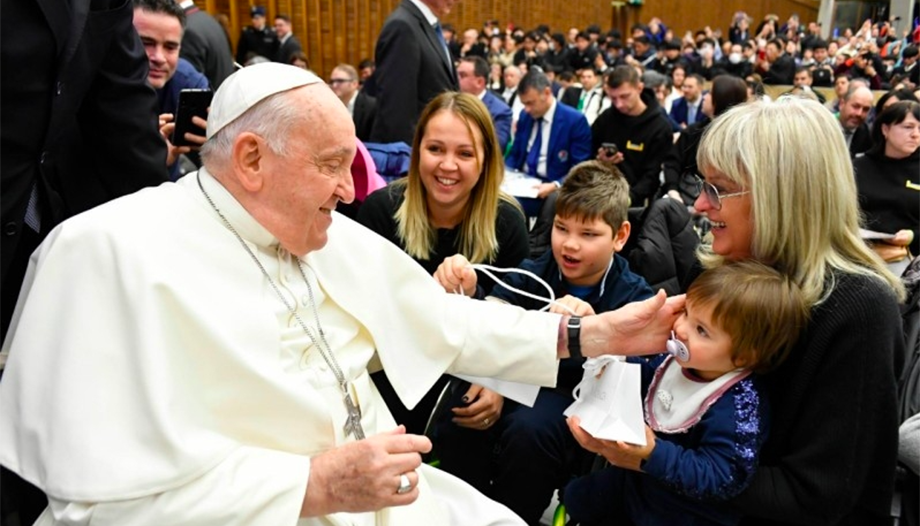Two days after March 8, and still very fresh from the French Parliament's decision to include the so-called "right" to abortion in the French Constitution, Pope Francis has made a special appeal to society, to politicians and to the world.
The Pontiff has said in the Angelus Today, it is the institutions that must provide the necessary conditions, not only to protect the dignity of every human being, but also to offer all women, "bearers of life", the most favorable conditions, even "necessary", so that they can accept "the gift of life and ensure their children a dignified existence". The "bearers of life", the most favorable conditions, even "necessary", so that they can welcome "the gift of life and ensure a dignified existence for their children".
In addition, the Holy Father wanted to express his closeness to all women, "especially those whose dignity is not respected." "There is still much work to be done by each one of us so that the equal dignity of women is concretely recognized." The Pope takes it for granted, therefore, that society does not yet consider the same dignity to values and women.
Praying for Haiti, closeness to Muslim brothers and sisters
Also after the recitation of the Marian prayer, Francis showed his "closeness and sorrow for the serious crisis that affects Haiti and the violent episodes that have occurred in recent days. I am close to the Church and to the dear Haitian people, who have been suffering for years".
"I invite you to pray, through the intercession of Our Lady of Perpetual Help, that all violence may cease and that everyone may offer their contribution to the growth of peace and reconciliation in the country, with the renewed support of the international community," the Pope added, referring to one of the poorest countries in the Americas, perhaps the poorest according to the usual rankings, and also in the world.
The Pope went on to say that "tonight our brothers and sisters Muslims I express my closeness to all of them", and he also greeted in a special way all the pilgrims from Rome, from all over Italy and from many parts of the world. Among them, "the students of the Irabia-Izaga College of Pamplona, the pilgrims from Madrid, Murcia, Malaga and those from St Mary's Plainfield - New Jersey", among others.
He also greeted with affection the Catholic community of the Democratic Republic of Congo in Rome, and prayed that "we pray for peace in this country, as well as in the tormented Ukraine and in the Holy Land. May the hostilities that cause immense suffering to the civilian population cease as soon as possible," he asked the faithful.
Jesus did not come to condemn, but to save.
In its commentary to the readings of this fourth Sunday of Lent, the Pontiff has quoted the Gospel fragment that presents the figure of Nicodemus, and meditated on the fact that "Jesus did not come to condemn, but to save. It is beautiful!"
Often in the Gospel we see Christ reveal the intentions of the people he meets, at times unmasking false attitudes, as with the Pharisees, or making them reflect on the disorder of their lives, as with the Samaritan woman.
"Before Jesus there are no secrets: He reads in the heart, in the heart of each one of us. (...) No one is perfect, we are all sinners, we all make mistakes, and if the Lord were to use the knowledge of our weaknesses to condemn us, no one could be saved."
Look with mercy
"But it is not so," the Holy Father points out. "For He does not use it to point the finger at us, but, rather, to embrace our life, to free us from sin and to save us. Jesus is not interested in prosecuting us or subjecting us to a sentence; He wants none among us to be lost."
"Jesus did not come to condemn, but to save the world."He reiterated. "Let us think of ourselves, who so often condemn others; so often we like to gossip, to seek gossip against others. Let us ask the Lord to give us, all of us, this look of mercy, to look at others as He looks at all of us."
"May Mary help us to desire good for one another," the Holy Father concluded.









